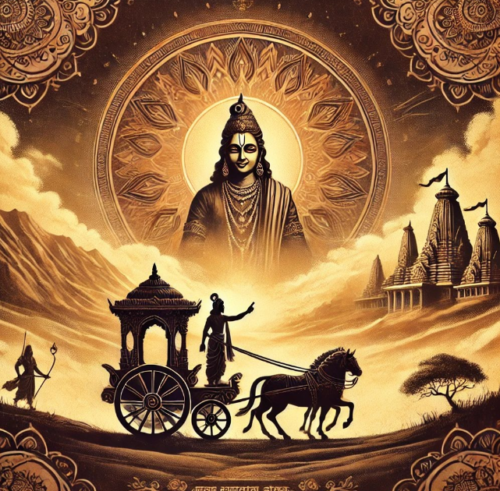The Mahabharata, one of India’s greatest epics, offers profound lessons not just for leaders and managers but also for parents. Its stories and characters provide timeless insights into parenting, family dynamics, and the importance of values. Here are some key lessons that parents can learn from the Mahabharata to nurture their children and build harmonious families.
1. Instill Values Early
The upbringing of the Pandavas and Kauravas highlights the importance of instilling values early in life. The Pandavas were taught principles of dharma (righteousness) by their mother Kunti and mentors like Bhishma and Drona, which shaped their character.
Teach your children honesty, empathy, and responsibility from a young age to lay a strong moral foundation.
2. Be a Role Model
Children often emulate their parents. Kunti’s strength and resilience in raising her sons during challenging times inspired the Pandavas to face adversities with courage.
Demonstrate the qualities you want your children to develop, such as patience, kindness, and integrity.
3. Balance Discipline and Love
Dhritarashtra’s excessive indulgence of Duryodhana led to the latter’s arrogance and destructive behavior. On the other hand, the balanced upbringing of the Pandavas ensured they respected boundaries and valued relationships.
Strike a balance between discipline and affection to guide your children effectively without alienating them.
4. Encourage Independent Thinking
Krishna’s guidance to Arjuna during the Bhagavad Gita emphasizes the importance of self-reflection and making one’s own decisions. He did not dictate actions but provided clarity for Arjuna to decide.
Encourage your children to think independently, make informed decisions, and take responsibility for their choices.
5. Support During Difficult Times
Kunti and Draupadi’s unwavering support for the Pandavas during their exile and struggles strengthened their resolve and unity.
Be a pillar of support for your children, especially during tough times, to help them navigate challenges with confidence.
6. Teach Resilience
The Pandavas’ journey is a testament to resilience. Despite facing betrayal, exile, and war, they persevered and stayed united as a family.
Teach your children to face setbacks with determination and to view challenges as opportunities for growth.
7. Avoid Favoritism
Dhritarashtra’s favoritism toward Duryodhana created discord and ultimately led to the Kurukshetra war. In contrast, fairness in relationships fosters harmony.
Treat all your children equally and avoid showing favoritism to maintain trust and harmony within the family.
8. Foster Sibling Bonding
The bond between the Pandavas was their greatest strength. They supported each other through thick and thin, ensuring collective success.
Encourage your children to build strong, supportive relationships with their siblings.
9. Guide Without Overcontrol
Krishna’s mentorship to the Pandavas is a prime example of guiding without controlling. He offered advice but allowed them to make their own decisions.
Provide guidance to your children but avoid micromanaging their lives, giving them space to grow.
10. Teach the Importance of Karma
The Mahabharata underscores the principle of karma—actions and their consequences. Krishna’s teachings remind us to focus on our duties without attachment to the results.
Help your children understand the value of hard work, dedication, and doing the right thing, regardless of the outcome.
Conclusion
The Mahabharata offers a wealth of wisdom for parents, emphasizing the importance of values, resilience, and balanced parenting. By incorporating these lessons into daily life, parents can raise children who are not only successful but also compassionate and ethical individuals. Just as Krishna guided the Pandavas, parents play a pivotal role in shaping the destiny of their children.
Stay connected with us at www.theknowledgenexus.in for more profound insights, timeless wisdom, and practical lessons
Disclaimer:
The content on this website is intended for informational purposes only, offering insights derived from the Mahabharata, Ramayana, and Bhagavad Gita. Interpretations may vary as these are deeply subjective matters and may be viewed differently across cultures and perspectives.






One thought on “Parenting Lessons from the Mahabharata: Timeless Wisdom for Modern Families”